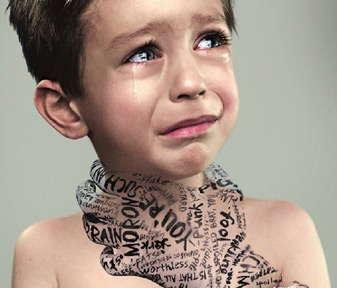Collective responsibility to combat child abuse
by Justice P.H.K. Kulatilaka
To ascertain who a ‘child victim’ is, it is necessary to look at
section 286A of the Penal Code as amended. It defines the ‘child’ to
mean a person under 18 years of age. Interestingly, Section 363 of the
Penal Code [substituted section under Amendment Act, No.22 of 1995] read
with aforesaid section 286a introduces a dichotomy or duality to child
rape crime on the basis of burden of proof. Firstly, a man is said to
commit rape who has sexual intercourse with a woman who is under 16
years of age with or without consent.
Secondly, where a woman is over 16 years and under 18 years, the man
commits rape when he has sexual intercourse with her without her
consent. Here the prosecution has to prove that the accused had sexual
intercourse with the victim without her consent.
 The burden is proof beyond reasonable doubt. Personally in the
context of the high incidence of rape committed on the children of the
second group I have my reservation about this artificial distinction
which very often than not, inures to the benefit of the wrongdoer. It is
simply a manifestation of blame the victim culture. The burden is proof beyond reasonable doubt. Personally in the
context of the high incidence of rape committed on the children of the
second group I have my reservation about this artificial distinction
which very often than not, inures to the benefit of the wrongdoer. It is
simply a manifestation of blame the victim culture.
By now the readers must have been well acquainted with the impending
danger posed by the child abuse crime threatening our nation rising from
the ashes of the war against terrorism. Unless it is effectively
contained child abuse crime is going to be an anathema that’ will bring
down all development work to naught’.
It is an issue of national relevance. It has become a threatening
episode touching upon the very foundation of our civil society because
of ‘collective failures of political, police and law enforcement
authorities, social care leadership and the community’.
They have become guilty bystanders by not taking effective steps to
restrain and check the influx of this epidemic of child sex crime in
recent time. It is a man made ‘disease'. Ignoring it with a cynical
sneer is to avoid a problem that is at your doorstep.
Rape
I quote here an utterance made by the Indian Prime Minister Narendra
Modi in his Independence Day speech referring to one of the burning
issues India is faced with namely, high incidence of rape. It is to the
following effect ‘Our heads hang in shame when we hear about such
incidents..’. The Indian Premier pointed out that this category of crime
is too vexed to be tackled with tough laws and severe punishments.
He emphasised the need for social mobilisation especially at family
level. These observations hold good for Sri Lanka as well. Some of our
High Court Judges told me that even though they imposed heavy sentences
in terms of the law the number of new cases filed in their respective
courts keeps on increasing.
To combat and eradicate the menace posed by the increasing trend in
child rape crime it requires a collective action from all the stake
holders namely, the State, the community, law enforcement authorities
including the Police and the Attorney General’s Department and the
Judiciary. They can’t shirk their responsibility. It is a shared
responsibility. To achieve success all stake holders have to act in a
frank and meaningful manner.
To achieve the objective of combating this challenge three pronged
attack has to be planned namely, precautionary measures to prevent the
occurrence of child abuse in future; measures that would give the public
full assurance that the perpetrator irrespective of who he is will be
apprehended and adequately punished and adequate measures to
rehabilitate and look after the victim.
Role of the State
The State is expected to abide by the Constitution and the legal
norms of good governance in relation to children. It has a binding
obligation to protect and safeguard children from any form of sexual
harassment, sexual abuse and other forms of violence both at home and
outside.
Sri Lankan State has recognised that violence against children cannot
be excused or justified on the ground of family privacy. Article 27[3]
of the Constitution has recognised the importance of protecting and
safeguarding the family unit as the basic unit of the society. It is
compatible with the requirement of good parenting, an accepted norm
prevailing in our society for generations.
It may not be inappropriate to reproduce an observation made by
Barack Obama on receipt of a flow of letters to the receptive White
House from children in the US soon after 20 children and six teachers
were gunned down by a rampaging gunman in Connecticut, urging the US
President to change gun laws.
He said, ‘What we should be thinking is our responsibility to care
for them and shield them from harm and give them and do everything that
they are capable of doing and help them to build the country. That is
our first task as a society. This is how we will be judged. And their
voices should compel us to change.‘ He exemplifies what is meant by good
governance.
It is of paramount importance that the children, the most vulnerable
sector of society to be made aware of their legal rights, their
inalienable right to the privacy of his body and limb including various
dangers awaiting them. Parents and education authorities can get a
vision from an observation made by Xiong Bingqi a deputy director of the
Beijing based education think tank 21st Century Education Institute
referring to child rape and grave sexual abuse in China.
To be continued |

